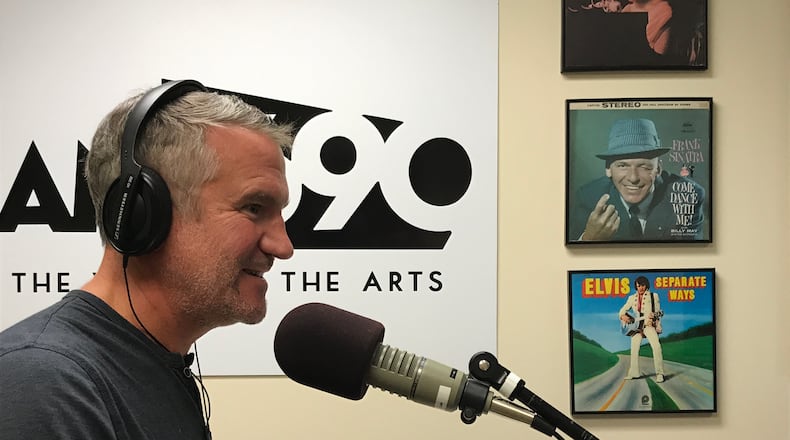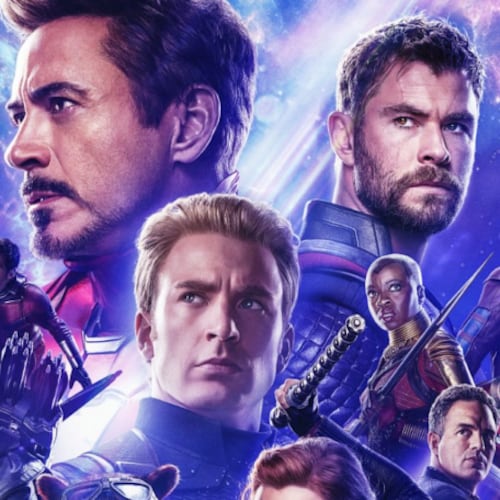This was posted by Rodney Ho/rho@ajc.com on his AJC Radio & TV Talk blog
Sending military veterans to be first responders in disaster areas. Creating custom costumes for children in wheelchairs. Preserving the traditions of Southern music by helping struggling musicians.
These are all activities of different charities. They are also subjects of the Atlanta-based podcast "Crazy Good Turns," created by two former Home Depot executives seeking to highlight compelling, emotional stories in the non-profit world. The podcast, available on most podcast platforms and www.crazygoodturns.org, is in its second season and has banked 20 episodes to date.
Brad Shaw, vice president of communications and external affairs for Home Depot from 2004 to 2015, said he spent a lot of time producing stories for the internal TV system at Home Depot piped into hundreds of employee backrooms and shown at store manager meetings.
"One of the things we did a lot of at Home Depot was celebrate associates and how they did great customer service," said Frank Blake, CEO of the Atlanta-based retail giant from 2007 to 2014. "This podcast is about people who go out and do extraordinary things for other people."
Listen to the latest podcast here:
http://dts.podtrac.com/redirect.mp3/traffic.libsyn.com/crazygoodturns/CGT_210_Angels_Foster_-_HLS_mix.mp3
The name came from a spit-balling session. When the phrase "good turns" came up, Blake said he wanted a memorable adjective. "I'm from Boston," Blake said. "I could have gone with 'Wicked Good Turns.' But we landed on 'crazy' and that stuck."
Shaw, now retired from Home Depot, said he has the luxury to host the podcast for free. He records his interviews at WMLB/1690 AM studios each week in Midtown, which provides the space gratis, while compensating one of the station's hosts Stephen Key to produce the show.
"There are a lot of podcast Q&As and one person spouting opinions on a topic," Shaw said. "We wanted to create a richer narrative, where we tell a story with a beginning, middle and end. We also wanted to create a lush sonic environment." That meant hiring a company Score a Score to insert music to provide aural texture to each story.
"Frank and I are both big music fans," Shaw said. "After we retired, we even considered opening a live music venue but quickly saw the folly in that. Music definitely augments the experience and brings a richness that might not otherwise be there."
Podcasting continues to grow in popularity. In an Edison Research study earlier this year, nearly a quarter of the population listened to at least one podcast over the past month, double the percentage from 2013.
But with the price of entry so low and the number of podcasts skyrocketing, it's difficult for any single podcast to hit it big.
So far, "Crazy Good Turns" draws about 5,000 downloads a month, a respectable number for an upstart but not enough to attract a sponsor. "We know we're producing a great product based on feedback from listeners and other podcasters," Shaw said. "It's really a function of growth and distribution." For now, they are mostly relying on word of mouth and help from the non-profits themselves to use social media to get more exposure.
Shaw said there are tens of thousands of worthy non-profits but not nearly as many with a captivating story. He spends a lot of his time vetting potential profile subjects.
One of his favorites is Rainbow Pack, founded by a Los Angeles-based ten-year-old girl, Riley Gantt. The charity distributes thousands of backpacks filled with school supplies to kids in poverty-stricken neighborhoods.
While the idea is not original, Gantt is special, Shaw said. "A gregarious kid, an independent thinker from the start, marching to her own beat," Shaw said in the podcast. She empathized with people from an early age and her parents encouraged her to do service. At age six, it boggled her mind that kids she met at a poorer school lacked crayons. This eventually led to Rainbow Pack.
"When she's an adult," Shaw said, "she will change the world somehow," Shaw said.
"Listen to the podcast," Blake said. "Her mom is in awe of her."
http://dts.podtrac.com/redirect.mp3/traffic.libsyn.com/crazygoodturns/CGT_EP204_-_Rainbow_Pack_-_HLS_mix1.mp3
While many podcasts run an hour or more, Shaw and Blake opted for a more manageable length of 20 minutes. Blake, even in his speeches when he was at Home Depot, restricted himself to 20 minutes, figuring the audience's attention would begin to wander if he went longer. (This is similar to how TED Talk's are limited to 18 minutes.)
"If you can't communicate something in a robust way in 20 minutes, you're probably adding too much clutter to the message of the story," Shaw said.
Key, the producer, said he's impressed how Shaw and Blake tackle the podcast with a seriousness of purpose stemming from their time running a multi-billion dollar company. "They offer a business-minded approach to humanitarian work," he said.
One way Key keeps the podcast tight in an unusual way is to sometimes fade out people while they are in the middle of a story and inserting Shaw's tighter narrative in its place. "It's a way to trim the fat and keep the story moving ahead," Key said.
Blake, out of his own pocket, awarded a $25,000 grant to one of season one's subjects, Team Rubicon, which uses the skills and experiences of military veterans to rapidly deploy emergency response teams. The second season, Blake plans to give out $50,000 to a deserving non-profit.
For Team Rubicon, the podcast "introduced us to a new audience that cares about unique causes and people," said Bobbi Snethen, Team Rubicon communications officer. "They understood our mission very clearly going in and brought the stories of veteran reintegrating into society to life. There was enough lightheartedness but also tug-at-the-heartstrings moments."
Here's the very first "Crazy Good Turns" episode last year featuring Team Rubicon:
http://dts.podtrac.com/redirect.mp3/traffic.libsyn.com/crazygoodturns/CGT_Episode_1_Team_Rubicon_-_071916_Censored.mp3
Credit: Rodney Ho
Credit: Rodney Ho
About the Author
Keep Reading
The Latest
Featured




